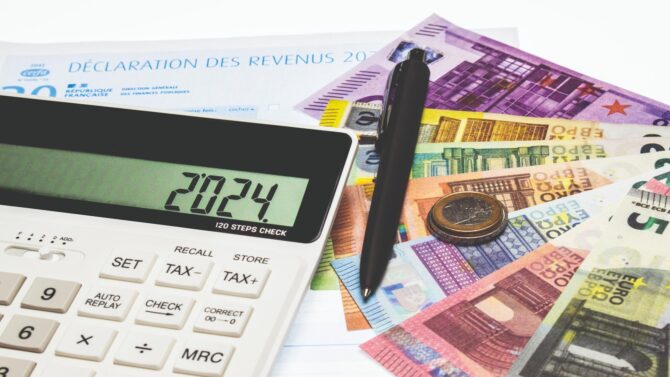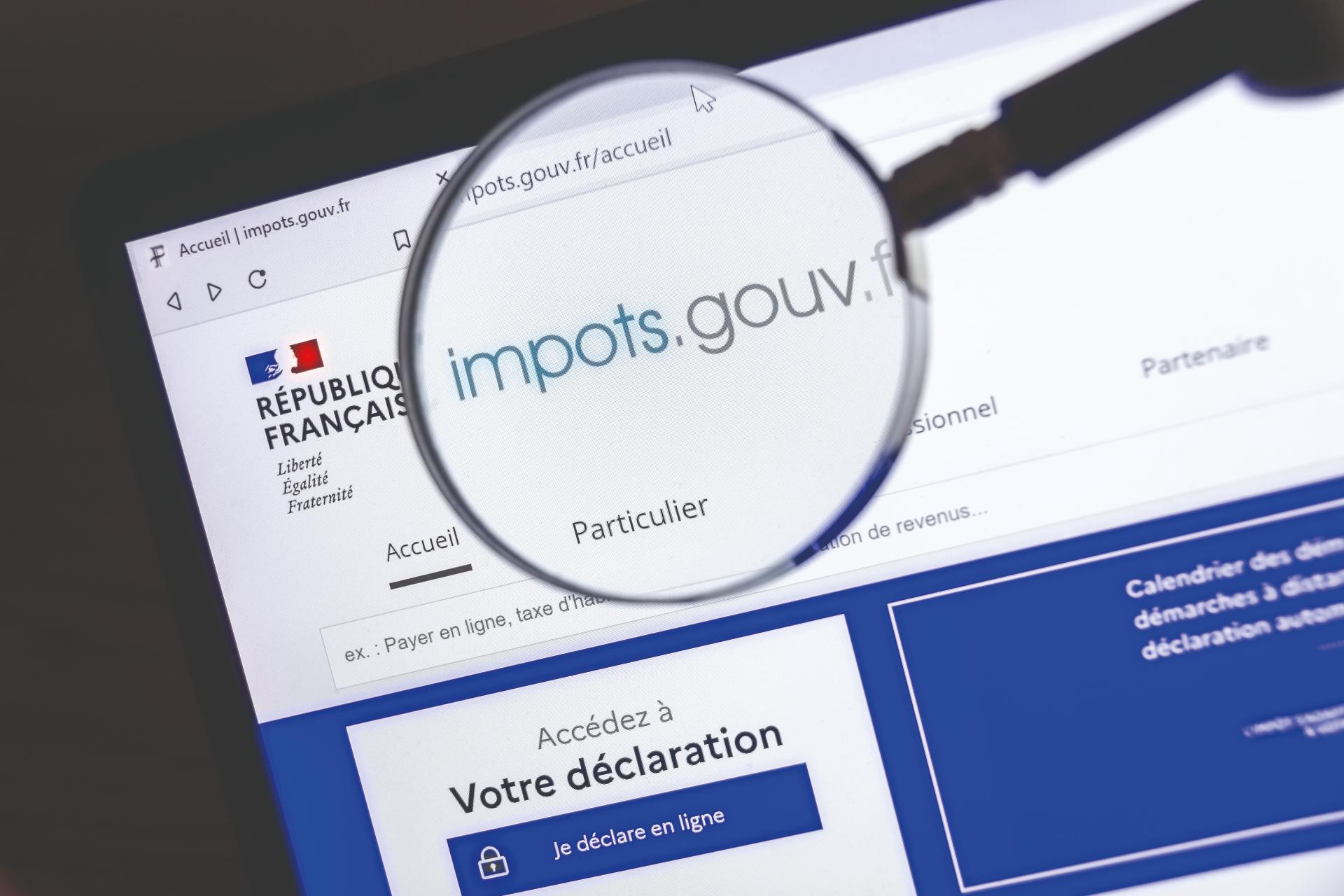A Guide to Tax Returns in France

If you are fiscally resident in France, you will need to complete an annual tax return – this may sound daunting, but with a little preparation and an understanding of how the system works, completing your French tax returns can be a surprisingly painless process, says Catharine Higginson…
So what is a fiscal resident? Quite simply, it is anyone whose main residence is in France or who works in France, or whose main economic interests are in France. In other words, French fiscal residency will apply to almost everyone living in France with a small number of exceptions for those with dual fiscal residency.
If your home is connected to the internet, you are required to complete and file your tax return electronically. If you don’t have internet access, you may complete a paper form but note that the deadline for returning the paper version is earlier than for the online one. The declarations for the 2024 income tax return (which concerns income received in 2023) are now open and the deadlines for completing the return vary slightly from zone to zone. You can find out the final dates for your department on the French administration website (servicepublic.fr/simulateur/calcul/declarationimpots).
If this is not the first tax return you’ve filed in France, you may be able to benefit from ‘automatic’ reporting. However, this will only apply if you were taxed just on pre-completed income (i.e. salaries) and there has been no change. If this is the case, you will be notified by the tax office who will contact you in the spring to let you know exactly what taxable income has been withheld. You do, however, still need to check all the other details that may have been automatically completed and confirm that it is correct. This will include family status and make up – i.e. marital status and number of dependents; income from wages and pensions; expenses paid for via CESU (le chèque emploi-service universel), usually for services in and around the home such as cleaning and gardening; or Pajemploi – a similar system for parents to pay wages and social charges for childminders.
For those who are fiscally resident in France, taxation applies to all of your income, whether it comes from French or overseas sources, and it will apply to all the members of your household meaning their income and expenses are taken into account before establishing a household taxable amount. Adult children born between 2001 and 2003 must complete an individual tax return. However, they can choose not to opt for personal taxation and remain attached to the parental household.
INCOME TAX
Income tax in France is calculated on a progressive scale that includes multiple tax brackets, each with a different tax rate ranging from 0% to 45%. The scale changes annually and is set by the yearly budget. The 2023 scale allowed for 0% tax up to €10,777, then 11% for income €10,778 to €27,478, 30% for €27,479 to €78,570, 41% from €78,571 to €168,994 and 45% for amounts over that. The family quotient also applies when calculating the tax brackets. This refers to the number of ‘parts’ that make up your household, meaning that a couple with three children will pay less tax than a single person or a couple without children.
However, the scale is only one element of the overall tax calculation, as income from different sources will attract different tax and, indeed, allowances. You can get a more complete picture by using the online simulator on the gouv.fr site (impots.gouv.fr/ simulateurs), but before you can do that, you will need to know what you must declare.
Salaries and income from any form of employment is a good starting point. If you are paid overtime, you will need to declare this, even if €7,500 of it is not taxable. If you receive tips (pourboires) you will also need to declare them even if, again, they are not usually taxable. Any benefits in-kind such as housing, meals, a company car or equipment such as a computer or telephone that are provided by the employer should be declared, as should any personal expenses benefits.
If you have children, some grants or bourses (usually not the means-tested ones) may need to be declared. Any financial benefits you have received as a result of an employment contract ending, whether unexpectedly – indemnités de rupture de contrat de travail (usually compensation/holiday pay etc) – or indemnités de fin de contrat ou de mission (such as the prime de précarité paid at the end of a CDD (contrat durée déterminée)) or short-term contract, are usually taxable.
However, the equivalent of redundancy pay (indemnités de licenciement) is in some cases entirely tax free. Pre-retirement payments (indemnité de départ en retraite ou en préretraite) are taxable; however, again in certain cases, a partial or total exoneration is possible.

Photo: Shutterstock
PENSION INCOME
All pension income needs to be declared. In France, all kinds of allowances are referred to as pensions. This includes retirement pensions (pensions de retraite) as well as any kind of invalidity allowance (pension d’invalidité) and child maintenance payments made by parents who have separated.
These are known as pension alimentaire and are taxable. Pensions alimentaires, which are paid by adult children to parents or grandparents, perhaps to pay nursing home fees, must also be declared but may be tax exempt for those on lower incomes. They are also a tax-deductible expense for the person paying them.
If you are retired and receive a rente viagère, you will need to declare this whether it comes from a property transaction or a produit d’épargne retraite, which is akin to an annuity.
SAVINGS & INVESTMENT

Photo: Shutterstock
All savings income must be declared. Some savings plans, such as the Livret A, livret de développement durable etc, are tax free. There are numerous savings plans – assurance-vie, various retirement savings plans, share-saving plans – and all of these attract different tax bands. Income and dividends from stocks and shares must also be declared along with any capital gains from property transactions. You will also need to declare income from rental properties, whether furnished or unfurnished (meublée ou non-meublée), and any profit made on the sale of shares.
The list of income streams to be declared is mind numbing but the government website has an easy-to-use ‘savings selection’ guide (service-public. fr/particuliers/vosdroits/F2613). And last but definitely not least, make sure you complete the section listing any overseas bank accounts held; this is really important, failure to do so can attract a hefty fine. Good luck and happy form filling!!
Top tip:
If you’re making your first declaration and haven’t received any login details, you can call a tax information hotline on 0809 401 401. The service is open from Monday to Friday, 8:30am to 7pm, excluding public holidays, and will be able to supply you with login credentials.
Read More: Filling in Your 2024 French Tax Return: The BASICS (Step-by-Step)
Looking for more French property advice?
The unique mix of legal, financial and tax advice along with in-depth location guides, inspiring real life stories, the best properties on the market, entertaining regular pages and the latest property news and market reports makes French Property News magazine a must-buy publication for anyone serious about buying and owning a property in France.
Lead photo credit : Photo: Shutterstock
Share to: Facebook Twitter LinkedIn Email
More in expert advice, Living in France, taxes



